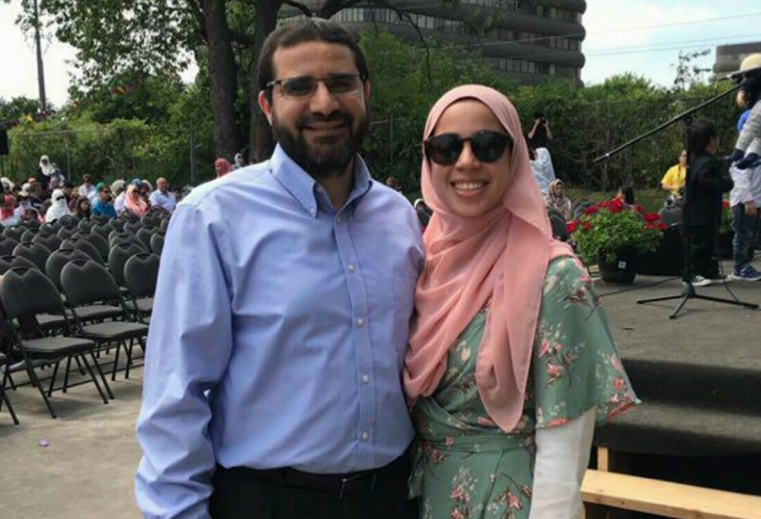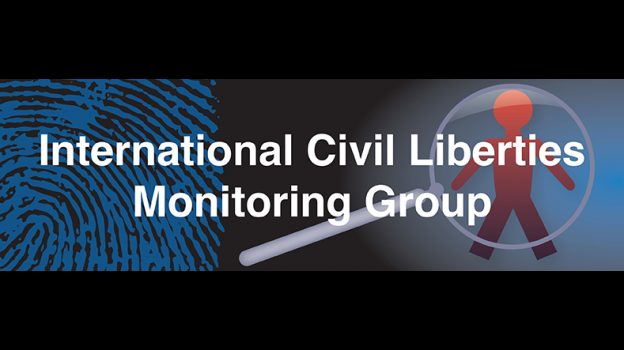by Xan Dagenais, Communications and Research Coordinator, ICLMG, and Matthew Behrens, Coordinator of Campaign to Stop Secret Trials in Canada. This op-ed was published in the Hill Times on March 11, 2019.
In his February 25, 2019 op-ed in the Hill Times entitled “Security certificate cases and Canada’s failure to use the intelligence it collects”, author and former CSIS employee, Phil Gurski, is advocating for an “intelligence culture” in Canada.
In a moment of self-awareness, Gurski admits that he has “an extreme bias in this regard and many will take issue with my remarks.” This is a clumsy attempt to get ahead of the criticism, and his extreme bias could suffice to discredit his piece, but let’s dig deeper.
Gurski uses the notorious security certicate cases of Mohamed Harkat, Hassan Almrei, Mohammad Mahjoub, Mahmoud Jaballah, and Adil Charkaoui to make his first bizarre point: “these cases should never have gone to court” because “intelligence in Canada is not collected to evidentiary standards”.
The solution to the mess of the security certificate regime is not to forego our courts and use secret, unsourced allegations to throw people out of Canada to face the substantial risk of persecution and torture if returned to their home country. Instead, the use of evidence that meets the rigorous standards of criminal court proceedings is paramount in a country that purports to be a democracy respectful of due process and the rule of law. If a compelling case exists against anyone, charge them.
Gurski also fails to mention that the cards are stacked in CSIS’s favour in such cases: indeed, the legislation specifically declares that a judge can receive into evidence – and base their decision – on anything, “even if it is inadmissible in a court of law.”
The perverse claim that the only reason these men were able to enter Canada is because the intelligence used to subject them to security certificates was made available too late is not supported by factual history. In reality, four of the men were accepted as refugees because of the risk they faced back home, while another was a permanent resident by the time his certificate was issued. In the meantime, after lives ruined by indefinite detention without charge, years in solitary confinement and brutal house arrest, and being tarred by state security allegations, 3 of the 5 security certificates have been thrown out by the Federal court. The intelligence in question – and the conclusions drawn from them – were simply not up to snuff, even under a CSIS-friendly regime.
In one of the two remaining security certificate cases, Mohamed (Moe) Harkat is fighting deportation to the substantial likelihood of torture in Algeria. (Toronto’s Mahjoub faces similar proceedings to send him to Egypt). As in all security certificate cases, neither Harkat nor his lawyer were able to see the “evidence” against him — a fundamental right in democratic system – and instead were forced to rely on redacted summaries of secret allegations. Moreover, key conclusions in Harkat’s case had previously been soundly rejected by another judge in a parallel case.
Additionally, both the Federal and Supreme Courts found that Harkat’s rights had been violated because all the original “evidence” against him had been illegally destroyed by CSIS. The Federal Court also expressed dismay that the spy agency had purposely withheld critical information that called into question the credibility of two secret informants at the heart of the allegations: one had failed a lie detector test, while another had had an affair with his CSIS agent handler. Inexplicably, the court refused to allow either informant to be cross-examined in either a public or secret court.
Again, despite having the cards stacked in their favour in such cases, Gurski portrays CSIS as a victim and, in a strange line of thought, suggests that maybe intelligence should be used as evidence. But that would then “call into question why CSIS exists”, and he doesn’t want CSIS to close down.
In its three decades of practice, CSIS has faced, and continues to face, well-documented criticism by its watchdog, high-profile judicial inquiries, the courts, human rights lawyers and advocates, for threat inflation, racial and religious profiling, complicity in torture, and poor management of sensitive files. Although questioning its existence is a healthy and important exercise, there is a much more immediate solution to the problems raised here. Intelligence is not used as evidence because it doesn’t meet the judicial standards which exist to prevent innocent people from being wrongfully convicted by the state.
If solid evidence existed in the security certificate cases above, these men should have been tried in a criminal court of law in the same system they would face if charged with any criminal offence. Instead, reliance on the low threshold of proof in security certificate cases where no charge is ever laid left them open to dire consequences based on a secretive system in which true accountability is absent.
That is why the immediate solution here is to get rid of the security certificate regime and insist that anyone subjected to such serious allegations be provided an open and transparent hearing marked by the more robust protections and standards afforded by criminal law. That is, if Canada wants to continue calling itself a democracy.
Since you’re here…… we have a small favour to ask. Here at ICLMG, we are working very hard to protect and promote human rights and civil liberties in the context of the so-called “war on terror” in Canada. We do not receive any financial support from any federal, provincial or municipal governments or political parties. You can become our patron on Patreon and get rewards in exchange for your support. You can give as little as $1/month (that’s only $12/year!) and you can unsubscribe at any time. Any donations will go a long way to support our work. |




